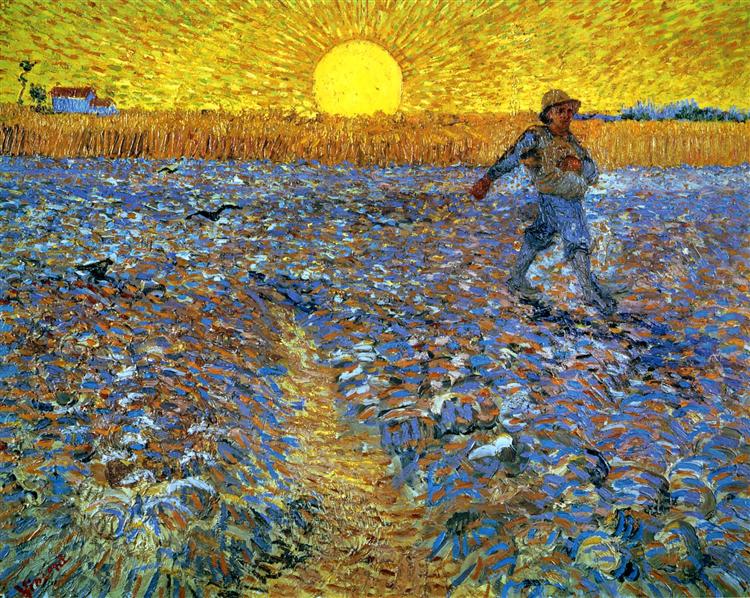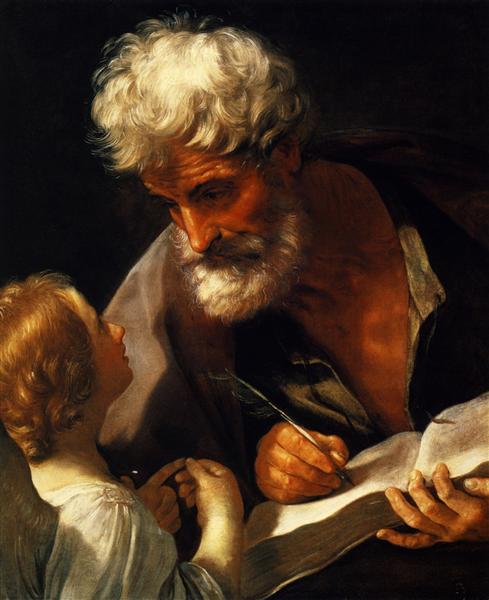The election is over. In the aftermath, there has been a great deal of confusion, frustration, anger, hateful words, division, unfriending, rants, despair.... The list goes on. It's a lot to take in. People are afraid. And when people are afraid, they say things they would not say otherwise. People are angry, and they will also say things they would not say otherwise because they are angry.
But the people who are explosive and angry have not caught my attention. I'm more drawn to those who are not swayed by the outcome of an election. What I mean by that, I have a deep admiration for those who don't let things like this shake their faith (or their friendships). Those people who continue to believe and trust that God is still in total control.
I would like to share something with you all. On election day, I read chapter 12 of the Gospel of Matthew. It was not premeditated. I didn't choose this chapter for this particular day. But as I've been working my way through the Gospel of Matthew, I opened my Bible on election day to that chapter. And I don't think that was any coincidence. This is what I read there:
Matthew 12:25 and following "Knowing their thoughts, He said to them, 'Every kingdom divided against itself is laid waste, and no city or house divided against itself will stand.... But if it is by the Spirit of God that I cast out demons, then the kingdom of God has come upon you.'"
And, yesterday, as I became more and more aware of how much hate and anger was going around on social media, my thoughts returned to this passage. The worst thing about this election season, as I see it, is the enormous division that has arisen among Americans. It didn't matter who you were voting for. If you weren't voting for the same person as another person was voting for, you were "unpatriotic," "bigoted," "racist," "criminal," and all other sorts of things that I will not repeat on principle. Look around you! What is this that is happening in America? This once great nation is being laid waste by disunity and hatred. If we want to see our country rise out of these dark times, then it's going to require something of us. We're going to have to overcome our differences and unite. We're going to have to work together. We're going to have to acknowledge and accept one another's shortcomings and choose to love one another because we are all human beings. I know a lot of people are scared. A lot of people are angry. A lot of people just don't know what's going to happen. But, the truth of the matter is, the division that has been created this election season is doing a lot more hurt than good.
It has also been shocking and saddening to me that people have been losing friendships over this election. No wonder we are suffering from so much disunity. If we can't even consider someone whose opinion differs from ours a friend, then how far have we fallen? Again, I find it no coincidence that this week I was also reading the chapter on Friendship in C.S. Lewis' The Four Loves. C.S. Lewis says of friendship that it is "...the least natural of loves," by which he means friendship is not necessary for survival. He says: "...we can live and breed without Friendship. The species, biologically considered, has no need of it."
He goes on to say:
"This (so to call it) 'non-natural' quality in Friendship goes far to explain why it was exalted in ancient and medieval times and has come to be made light of in our own. The deepest and most permanent thought of those ages was ascetic and world-renouncing.... But in Friendship - in that luminous, tranquil, rational world of relationships freely chosen - you got away from all that. This alone, of all the loves, seemed to raise you to the level of gods or angels."
Friendship isn't (or shouldn't be) about agreeing with someone on everything. Look at Lewis himself. He and J.R.R. Tolkien were very dear friends. But the number of things they disagreed on was equal to (if not greater than) the number of things they agreed on. This didn't end their friendship.
Personally, I think these two would have been appalled by the "Facebook friends" trend, where you can call someone your "friend" without them being your "friend" in the truest sense of the word. C.S. Lewis believes friends are friends because they share a common interest. They rarely talk about their friendship (as opposed to those in romantic relationships, Lewis says, who seem to only talk about one another). Some of the greatest friendships (ask someone who has been friends with a particular person for more than 20 years) are those friendships where we are challenged by our friends to be better. In college alone I saw a number of friendships struggle, to their end or to their redemption. But when the struggle passes, if the friendship still stands, it stands the stronger. But it would not have been that way had the people involved simply given up on it. They were willing to sacrifice, willing to try, willing to fail. But they gave it a chance.
I don't mean to condemn those friendships that struggled and failed. Sometimes, this too, is necessary, though it be painful. Blessed Fulton J. Sheen once said: “Sometimes the only way the good Lord can get into some hearts is to break them.”
This only makes sense if we understand love as willing the good of the other. And, as John Paul II categorized friendship as the highest form of love, the great saint defines friendship as "willing the good of the other for the other's own sake." That is to say, "That person is my friend, and I desire what is best for that person. I not only desire it, but I will it. And I will it with no expectation or desire of reward."
One of my favorite contemporary Catholic speakers is Chris Stefanick of Real Life Catholic. The day after the election, he posted a video in which he said:
"Respect each other. There is no political party, no election is worth losing friendships over. There is no political party, no president that is worth getting into debates that might close the door for you to bring the Gospel of Jesus Christ to your friends and family for."
What's a true testimony of true friendship? That I unfriend you because of your political beliefs? Or that I allow you to express your political opinions, even though I may disagree with them, and that your expression of what you think does not change the fact that I consider you a friend?
To continue His beautiful and amazing way of rocking my world and blowing my mind (even just a little), I opened up my Bible yesterday to keep reading through Matthew's Gospel, and once again the contents seemed super appropriate for the aftermath of this election.
Jesus has just dealt with a lot of verbal opposition from the Pharisees. Earlier, they had accused His disciples of breaking the Sabbath. Now they've accused Him of casting out demons by the power of Satan, and then they demanded a sign of Him... basically, Jesus has had a hard day, and probably an exhausting one. Because, remember, He's fully man as well as fully God, He can get exhausted.
So, chapter 13 of St. Matthew's Gospel, it says:
That same day Jesus went out of the house and sat beside the sea. And great crowds gathered about Him, so that He got into a boat and sat there; and the whole crowd stood on the beach.
Now, if I was in Jesus' place, I think I would be exhausted. I would've wanted my quiet time by the beach and just asked everyone to come back another day. But Jesus doesn't do that. He continues to carry out the mission that He has received from the Father.
| The Sower by Millet |
And He told them many things in parables, saying: 'A sower went out to sow. And as he sowed, some seeds fell along the path, and the birds came and devoured them. Other seeds fell on rocky ground, where they had not much soil, and immediately they sprang up, since they had no depth of soil, but when the sun rose they were scorched; and since they had no root they withered away. Other seeds fell upon thorns, and the thorns grew up and choked them. Other seeds fell on good soil and brought forth grain, some a hundredfold, some sixty, some thirty. He who has ears, let him hear."
The parable is also relevant for us in this moment in history. The sower went out to sow. The sower doesn't know what seeds will sprout and what seeds won't. He sows them anyway. He doesn't know how much fruit the seeds will bear or how much of a harvest he will have. He sows them anyway. There is an uncertainty that comes with his role. That uncertainty of the future doesn't stop him from doing the task he has been given to do. And it shouldn't stop us either, particularly those of us who are engaged in the work of evangelization and catechesis. No matter what is going on in the world or in our own little world of our personal lives, we have been given the task of proclaiming the Word of God, whether it is convenient or inconvenient. The election doesn't change that. (In fact, I think it makes it all the more important!)
 |
| The Sower by Van Gogh |
But, not only do we need to embrace the role of the sower, we need to recognize the truth that we are the soil. To what measure is the soil of my soul prepared to receive the Gospel and for that Gospel to bear fruit in my life? Which kind of soil am I? Am I the trodden path? The rocky soil? The thorny patch? Or the good soil? What things do I need to weed out of my life for the Gospel to take root and not be choked by my worldly concerns? What parts of my heart have become to hardened to receive the Word? and how can I break up that soil? What places in my life need more good soil added to them so that there is a good foundation for the Gospel to take root?
How can I work with Jesus the Sower to make my heart a patch of good soil that is ready to receive the Gospel? This is what will make a difference in the world; even more of a difference than who is in the White House.
As J.R.R. Tolkien said, "Even the smallest person can change the course of the future."
And, to quote a movie less renowned than the great 20th century author, "How do we change the world? One act of random kindness at a time." (Evan Almighty, 2007)
We need to acknowledge that the only One Who can heal the wounds of this nation, is the One that so many are trying to push out of government matters altogether: Jesus Christ. He is the answer. If only more people would believe this! We need to stop placing so much faith in an elected official and a government to lead us and take care of us, and start putting all our faith in Jesus Christ. We are citizens of His kingdom first. And guess what: He still reigns since 33 A.D. (and long before). He is our one and only Hope. Now and forever.
Until we meet again, I leave you with this parting thought:
Pace e bene,
the Itinerant Catechist










